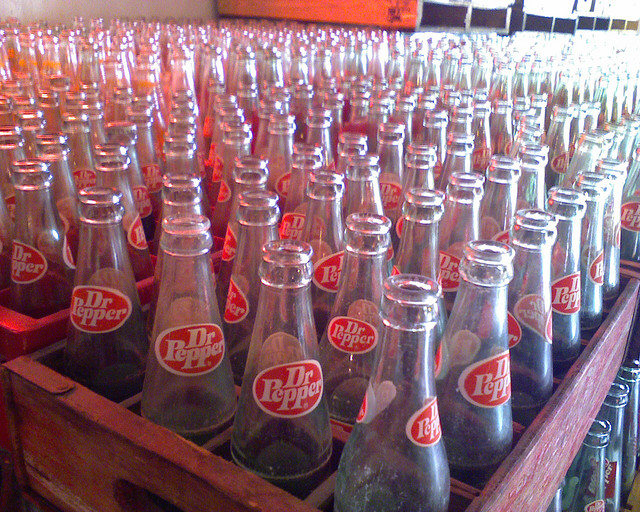Jennifer Dunn
The dog is dying, of course. I’ve no idea how she came to be here, so far from the road and so far from town. She has a studded collar but no tags. She doesn’t whimper, just gazes up at me in that pit bull way, like she’s trying to assure me that, contrary to her reputation and her jaws wide as a bowling ball, she’s just a creature seeking love and nothing more. I’ve the impossible idea that I must do two things simultaneously: I must both stay with her here and go in search of help. But it’s like those Choose Your Own Adventure books I used to obsess over when I was a kid. You’re not really changing the ending, you know. That’s what my mother used to say to me in the rearview mirror on our endless drives to wherever— Chula Vista, Monterey, San Louis Obispo— a joint pressed between her forefinger and thumb. The ending is the ending is the ending. Get over it.
I lift the dog’s head into my lap and holler across the vineyard, though there is no one around to hear. Blood spills from her mouth, a stain blossoming on my white jeans. So there is this, and there is the adolescent Viognier and the cross-pollinated Cab Franc. The slopes of chaparral and the diminishing light, tartans of shadow across the valley. And there is Alastair, an epic half mile away at the tasting party, wearing a collarless linen shirt and a straw derby. He’s pretending to talk to the vintner, Dan, but really he’s flirting with a woman named Patricia—pronounced Pa-tree-see-a—who’s got dark, plaited hair and a cheetah tattoo on her shoulder and is from someplace like Barcelona or Valencia or Cordoba.
I wonder if he’s noticed that I haven’t come back yet.
Alastair stays in an apartment in LA during the week now because he says that he can’t stand the commute. He brought me to the party because I’ve been complaining that we never spend time together anymore. Alastair and Dan have been friends forever— Alastair and I used to come up here all the time for tastings and picnics when we first got together. When we arrived this afternoon, Dan kissed me hello and asked, how did I do it? How did I still not look a day over thirty? And Alastair pinched my arm just above the little callused disc on my elbow and said, “I’m convinced the only reason everyone thinks she’s so young is because she doesn’t have kids.”
I wonder if he said this because I told him on the ride up here that my gynecologist says I’m in perimenopause and this is why I can’t sleep anymore.
Alastair’s been growing his hair out and it’s past his shoulders now. He’s always been vain about his hair, but he’s gotten worse since he turned forty-five. As we stood there sampling the wine and listening to Dan describe the varietals, Alastair kept taking off his derby and running his hand through his hair, I suspect because he wanted to show Pa-tree-see-a that he wasn’t balding. He was also keen on discussing how the tannins, or the nose or the finish or what have you, compared to Spanish wine, which he claimed was superior to French wine in every way, though I guess this view is controversial. To her credit, she didn’t seem to care much about any of it. Somehow though, I wish that she had—I want her to be twenty-four and scantily clad and throwing herself at him. But she’s like me, more or less. No, she’s like me, I’m sure of it: distracted, overtired, lonely. Feeling no more prepared than she did when she was a kid driving around Barcelona or Valencia or Cordoba or wherever with her own mother.
Alastair wasn’t the only one who wanted to demonstrate that he was on a first name basis with the vintner. So while Dan became the center of a little buzzing knot of fanfare like a magnet surrounded by iron shavings, Alastair took the opportunity to ask Pa-tree-see-a about her cheetah tattoo. He traced the tip of his forefinger across her bare shoulder blade where the cheetah’s exaggerated tail snaked like calligraphic S.
I didn’t exactly run, but I wanted to. I didn’t make excuses, just hurried away from the tasting room with its baskets of water crackers, its terrace of glowing Kokopelli chimineas and manicured banks of aloe and lavender and goldenrod. So that then there was nothing but the vines, twisted like Joshua trees, and the plumes of drunken bees hovering in the zigzags of light.
My knocking heart.
“What do we do? What do we possibly do for you, baby?” I ask the dog. Our eyes meet, and hers are the color of those stones you sometimes find in the Mojave beneath the shrubs, the yucca and juniper and desert holly. I’m convinced that if I look away she’ll die, and the worst part of it is that I can’t explain anything to her about what is happening or ask her anything about her life. My mother always said that these things make dying easier, though easier for whom, I’ve never really been clear. The dog tucks her paws up under her chin and wiggles a little in the dirt like a toddler curling up inside a blanket. I palm her ribcage and she offers a shudder, another ribbon of blood leaving her mouth, briefly warm upon my thigh. And all I can think is that I want to gather her up into some tiny circumference of space— something smaller than a lap or an embrace or even a womb— so that she understands that I wish I could just protect her from all this. It’s what I would want her to do for me if, somehow, our roles could have been reversed.
Jennifer Dunn grew up in Washington, DC, but has recently relocated to Saint Louis after a five year stint in Southern California. Her work appears in Eclectica, Night Train Magazine, the Los Angeles Review and is forthcoming in decomP magazinE. She is a graduate of the MFA program at Brown University, and has been honored in the Million Writers Award, storySouth’s Best of the Net. She is currently seeking publication for her debut novel, What If It’s Empty.


